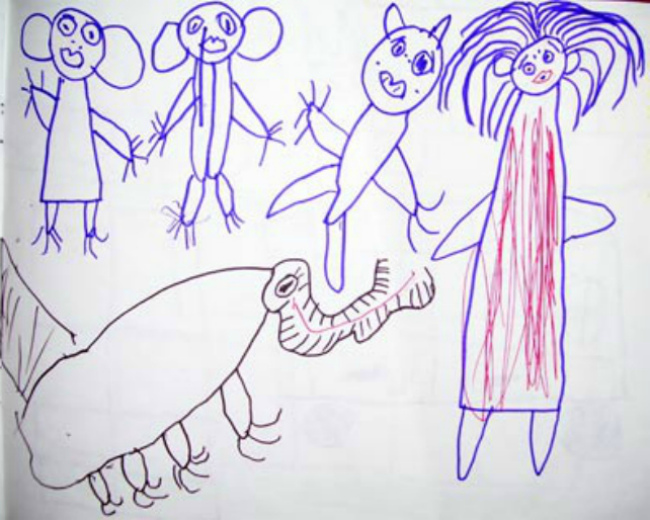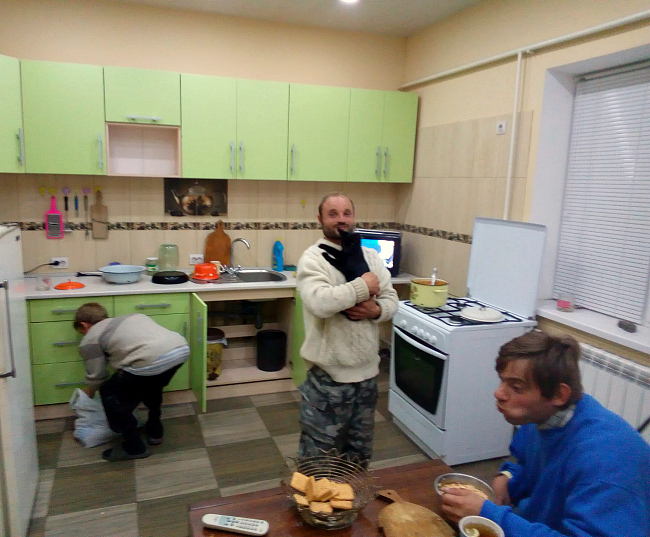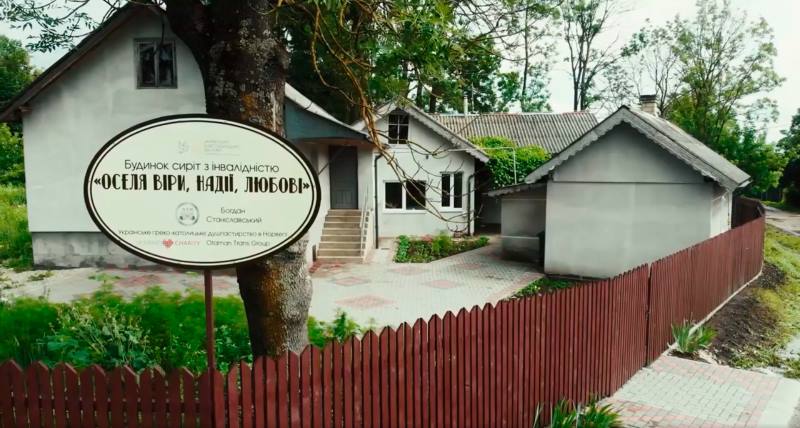
1. Such people constantly need help, most often financial.
In fact, financial condition is far from the main problem of people with disabilities. For many, the most difficult is isolation from society, loneliness, the inability to escape from the four walls. Some wheelchair users are even ready to pay for the services of a person who will help them get out into the street from the fifth floor of the Khrushchev - but even for money they cannot find someone who will do it.
2. The main thing is to make ramps in all public places and ensure the passage of wheelchairs.
In my experience, ramps, while important, are not critical. It is more important to have friends who can walk with a person in a wheelchair. Friends who are not afraid of any stairs. Often ramps, lifts, elevators are showing off and unusable, and even dangerous. Personally, I have lowered and raised a person in a wheelchair up and down stairs dozens of times, and perceived this as a useful physical exercise. It was more difficult for me to find time for such a walk. In the absence of friends and volunteers, even with a ramp, a person with a serious disability will not be able to cope with many tasks on his own. Although, when designing new structures, of course, it is necessary to include in the design the possibility of access for wheelchair users.
3.Disabled people are people in wheelchairs.
People in wheelchairs are only a fraction of people with disabilities. And the smaller part. For example, in psycho-neurological institution (PNI), most of the inhabitants can move independently. These are people with Down syndrome, congenital and acquired mental retardation, some forms of cerebral palsy, senile dementia, schizophrenia, etc. There are many people who are bedridden and cannot be in a wheelchair in a sitting position, they need special wheelchairs for those who are lying down.
4. People with disabilities do not feel the need for love relationships and sexual life. And if they feel it, then they cannot be allowed to do so, "no matter what happens."
In fact, like for any person, love and sexual relationships are very important for people with disabilities, for the most part. Loneliness, the inability to create a family and be with a loved one is a much more serious problem than the lack of ramps. Unfortunately, we talk very little about this problem and do not really know what to do. Most of the PNI in our country are divided into female and male, as a result - aggression and the development of homosexual relations. Solving the issue - study and active implementation of foreign experience, creation of dating and communication clubs, creation of mixed PNI.
5. People with psycho-neurological disorders, mental retardation, schizophrenia must be isolated from society in psycho-neurological institutions (PNI), psychiatric hospitals, etc., as they are dangerous.
In fact, most of these people do not pose any danger, but they need our acceptance and support. In all developed countries, such people are not kept in PNI, but are placed in small (5-10 people each) group supported living houses. These houses are located in communities, supported by volunteers, religious organizations and the state. There are also private boarding houses. Some of these people live with their families or with foster families and receive support at home. Only in the most acute cases are they hospitalized in psychiatric wards. In the absence of guardians-relatives, the social worker monitors the observance of the rights of his ward and selects the most comfortable form of support for him.
6. People with disabilities are a burden on society, they do not bring any benefit
In fact, many of these people are very talented, they can successfully work as programmers, journalists, writers, copywriters, etc. People with mental retardation can ideally cope with agricultural work, some construction work, take care of animals, keep cleanliness, work as a nanny or nurse, look after "lying" inhabitants. People with schizophrenia often have above-average intelligence, compose poetry and songs, draw, and excel in many other areas. But even bedridden people with profound mental retardation can teach us a lot and make us think about the value and meaning of life. They are ready to accept our love and give it in return.
7. Their parents are to blame for the disability of children, let them clear up the mess themselves (there are versions about punishment for the sin of parents, etc.)
Most often, this version has nothing to do with reality. Children with disabilities can be born to absolutely healthy, intellectually developed people. Yes, in some cases, children are born with fetal alcohol syndrome and diseases caused by the mother’s incorrect behavior during pregnancy, but these are not so frequent cases.
8. Parents of children with disabilities (most often mothers) are obliged to sacrifice themselves for their special child, forgetting about their personal lives, their own development and other children in the family
There are many examples when, after the birth of a special child, a mother becomes obsessed only with him, forgetting about herself, her husband and other children. Such a mother bears her cross, instead of openly asking for help from society, to other parents of similar children, to development and daycare centers. The result is complete emotional burnout, the unpreparedness of the child for adulthood, a tragedy after the parents pass away. The alternative is communication with like-minded people, placement of the child in a day care center, feasible adaptation of the child to adult life, or finding a suitable place for the adult child to live (group home, boarding house, supported living, home with a nanny - all options except PNI).


So, let's stop dividing people into disabled and healthy people, let's show empathy, love and acceptance to everyone around us!
And support some projects right now:
Happy Homes for 18 children with disabilities in Kalinovka
PNI and assistance to the first group home for young people with disabilities in Lyubimovka
Help for the bedridden Sasha and Alyosha from Kalinovka
Articles about PNI and the stories of people from these psycho-neurological institutions




